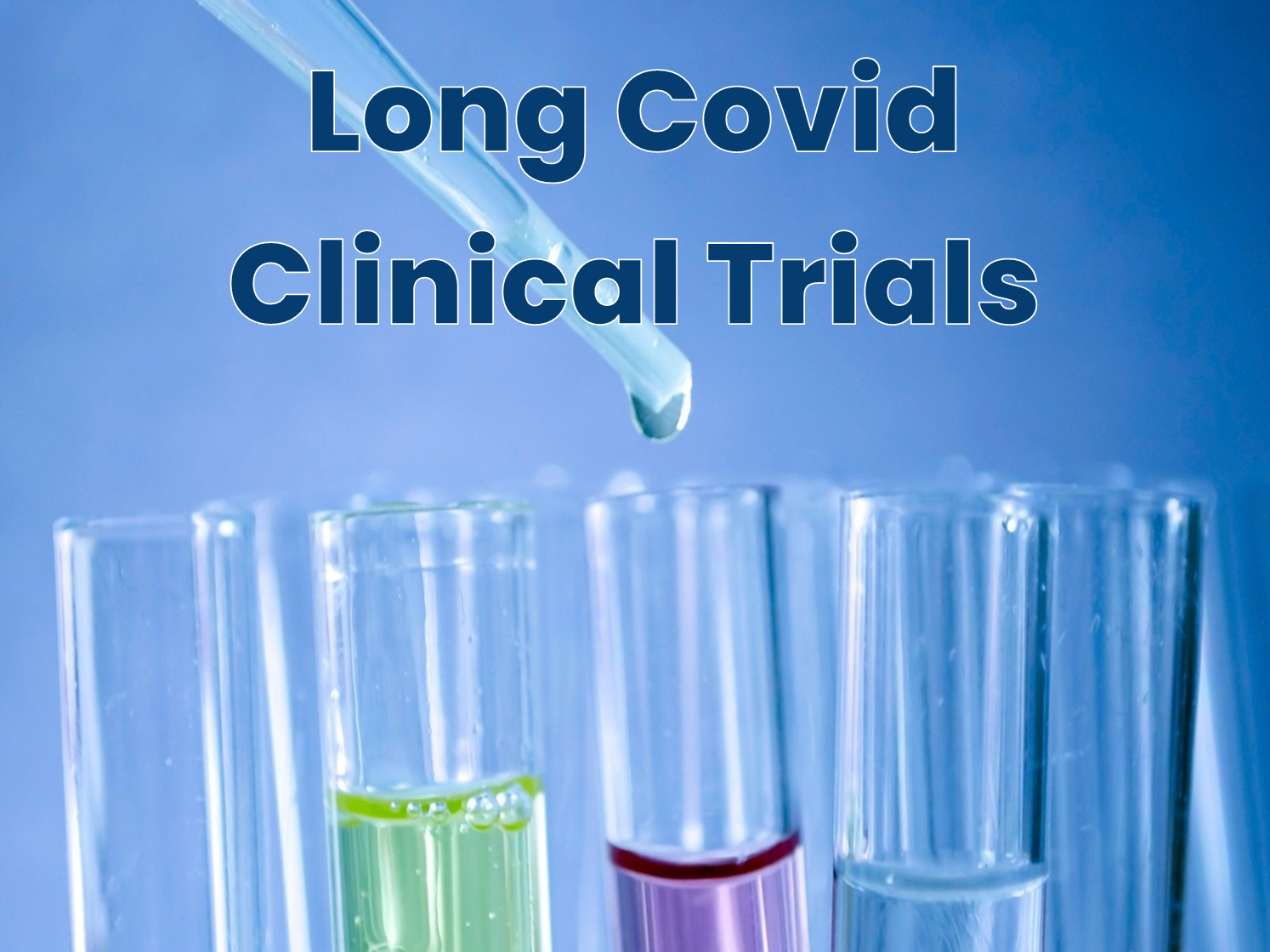When people have symptoms for weeks, months, or even years after a COVID infection, it is called Long COVID. Researchers are working to learn more about the long-term effects of COVID to help prevent and treat them. If you think you have Long Covid, discuss it with your physician and mention the NIH Clinical Trials.
The research effort at NIH is known as the Researching COVID to Enhance Recovery (RECOVER) Initiative. In December 2020, Congress approved $1.15 billion for the NIH to research and test treatments for long COVID. The new clinical trials now occurring are phase II, meant to test how safe the treatments are and how well they work.
The RECOVER clinical trials are designed as platform protocols that allow researchers to study different interventions at the same time. The clinical trials will explore possible treatments for:
- Autonomic Dysfunction – Dizziness, fast heart rate, shortness of breath, upset stomach, or other changes in body functions that happen automatically.
- Cognitive Dysfunction – Brain fog, trouble thinking clearly, memory changes, slowed attention, and other symptoms related to brain function.
- Exercise Intolerance and Fatigue – Exhaustion or low energy that interferes with daily activities.
- Sleep Disturbances – Changes in sleep patterns or ability to sleep.
- Viral Persistence – When the virus that causes COVID-19 stays in the body and causes damage to organs or causes the immune system to not function properly.
The clinical trial sites are located across the country. Sites are selected based on their closeness to communities that are most affected by Long COVID. The first two trials have started enrolling participants:
RECOVER-VITAL will initially focus on a treatment targeting SARS-CoV-2 persistence, which could occur if the virus stays in the body and causes the immune system to not function properly or damage to vital organs. The first intervention will test a longer dose regimen of the antiviral PAXLOVID (nirmatrelvir and ritonavir) than is used for treating acute COVID to see if it improves the symptoms of patients with long COVID. PAXLOVID is provided by Pfizer, Inc., New York City, and is currently approved for the treatment of mild-to-moderate COVID-19 in adults who are at high risk for progression to severe COVID-19, including hospitalization or death. The first trial sites have been activated and are enrolling.
RECOVER-NEURO will examine accessible interventions for cognitive dysfunction related to long COVID, including brain fog, memory problems and difficulty with attention, thinking clearly and problem solving. Interventions under this protocol will include a web-based brain training program called BrainHQ, developed by Posit Science Corporation in San Francisco, that has been used to improve cognitive function; PASC-Cognitive Recovery, a web-based goal management training program, developed by Mount Sinai Health System, New York City, that has been used to improve executive function; and a device used for home-based transcranial direct current stimulation developed by Soterix Medical, Inc., Woodbridge, New Jersey, which has been demonstrated to help brain activity and blood flow. Trial sites are currently being activated.
Additional trials, based on the below platform protocols still under review, will launch in the coming months:
RECOVER-SLEEP will test interventions for changes in sleep patterns or ability to sleep after having COVID-19. A trial for hypersomnia, or excessive daytime sleepiness, will test two wakefulness-promoting drugs compared to a placebo control. A second trial for sleep disturbances, such as problems falling or staying asleep, will test other interventions designed to improve sleep quality to learn if these interventions may help regulate sleep patterns in adults with long COVID.
RECOVER-AUTONOMIC will examine interventions to help treat symptoms associated with problems in the autonomic nervous system, which controls a range of bodily functions including heart rate, breathing and digestive system activity. The initial trial will focus on postural orthostatic tachycardia syndrome (POTS), a disorder with a number of symptoms including irregular heartbeat, dizziness and fatigue, and will have multiple study arms. The first arm will evaluate a treatment used for immune diseases versus placebo. The second arm will evaluate a drug currently used to treat chronic heart failure in people with an elevated heart rate versus placebo. Participants within each arm will then be randomized to receive either more intensive coordinated care that does not involve additional medication, or usual care.
A fifth platform protocol, focusing on exercise intolerance and fatigue, is under development with input from the patient community and scientific experts. Those interested in learning more about RECOVER trials should visit https://trials.recovercovid.org/
For information about NIH RECOVER clinical trials go to RECOVER Clinical Trials | FAQs (recovercovid.org)
Contact the initiative at Website feedback | RECOVER COVID Initiative Long Covid Clinical Trials

